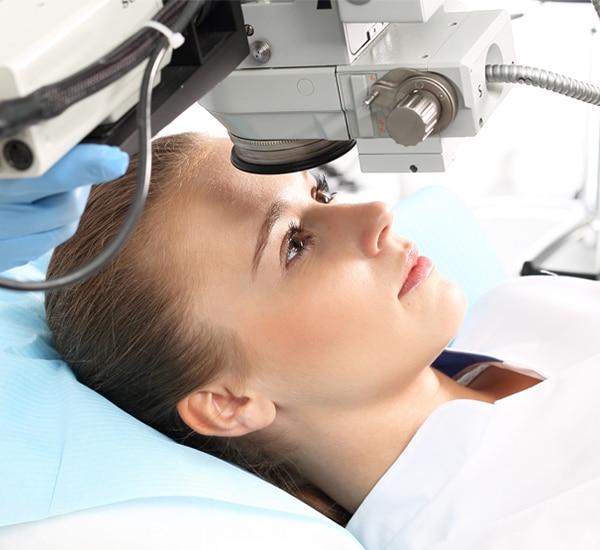
LASIK, short for laser-assisted in situ keratomileusis, is a highly popular surgical procedure used to correct common vision problems. By using a laser, the shape of the cornea is permanently altered, resulting in improved vision and reduced reliance on glasses or contact lenses. This procedure is effective in treating nearsightedness, farsightedness, astigmatism, and presbyopia.
During LASIK, an ultraviolet laser known as an excimer laser is utilized to remove a thin layer of corneal tissue. This reshapes the cornea, allowing light rays to focus clearly on the retina. For nearsighted individuals, the goal is to flatten the cornea, while for farsighted individuals, a steeper cornea is desired. Additionally, LASIK can also correct astigmatism by smoothing out any irregularities in the cornea.
LASIK is an outpatient procedure that does not require an overnight stay at the surgery center. Each eye takes approximately 10 to 15 minutes to treat. The patient remains awake during the procedure, although mild sedation can be requested. The only form of anesthesia used is eye drops that numb the surface of the eye. It is possible to undergo LASIK on one or both eyes during the same session.
Frequently Asked Questions
How To Prepare For LASIK Eye Surgery?
Before undergoing LASIK eye surgery, the patient will undergo a thorough evaluation by the eye surgeon. This evaluation includes a review of the patient's medical history and a comprehensive eye examination. During the examination, the surgeon will measure the thickness of the cornea, assess refraction, map the cornea, measure eye pressure, and dilate the pupil. Following the examination, the surgeon will provide information about what to expect during and after the procedure.
On the day of the surgery, it is recommended to have a light meal before visiting the doctor and to take any prescribed medications, if applicable. It is important to avoid wearing eye makeup, creams, perfumes, or lotions on both the day before and the day of the surgery. Additionally, bulky hair accessories that may interfere with positioning the head under the laser should be avoided.
For at least three days prior to the evaluation, contact lenses should not be worn. In the case of rigid gas permeable contact lenses, they should not be worn for at least three weeks before the evaluation. It is also advisable for patients to arrange for transportation home from the surgery location, as their vision may be blurry.
What Happens During LASIK Eye Surgery?
What To Expect After LASIK Eye Surgery?
Please note that your eyes may feel dry even if they don't seem that way. To prevent infection and inflammation, you will be prescribed one eye drop, and another eye drop will be given to keep your eyes moist. These drops may cause a slight burning sensation or temporary blurring of your vision. It is important not to use any eye drops that have not been approved by your LASIK surgeon.
The healing process after LASIK eye surgery is usually rapid. Your vision may be blurry and hazy on the first day, but most patients experience improved vision within a few days. A follow-up evaluation will be scheduled 24 to 48 hours after the surgery, as well as at regular intervals during the first six months.
What Are The Advantages Of LASIK Eye Surgery?
LASIK offers numerous advantages, such as:
- Vision is typically corrected within a day after the procedure.
- LASIK significantly reduces reliance on eyeglasses or contact lenses, with some patients no longer needing them at all.
- Vision adjustments can be made in the future if changes occur due to aging.
- The use of numbing eye drops during LASIK minimizes discomfort.
- No bandages or stitches are necessary post-LASIK.

